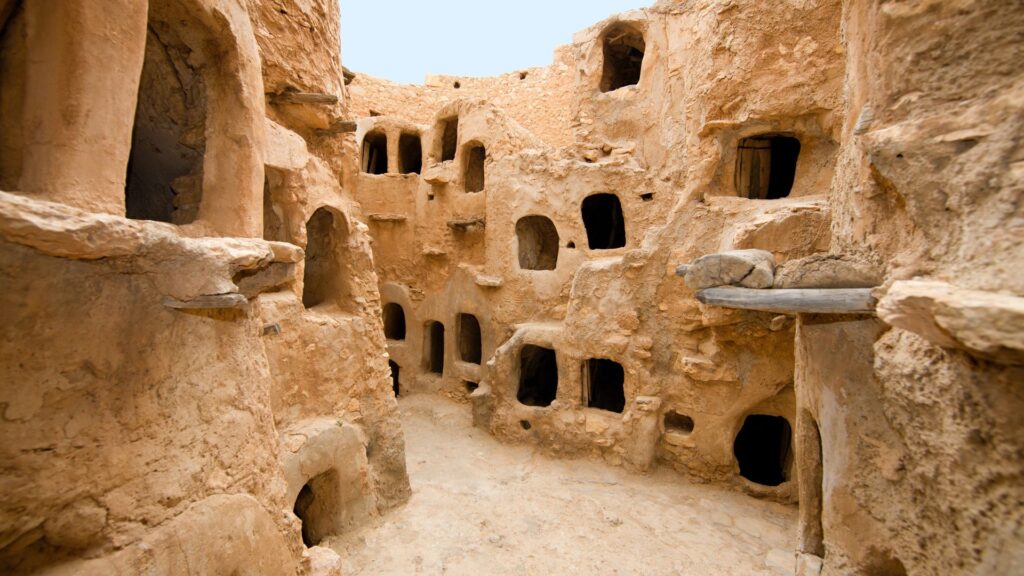Tobruk, also known as Al Buţnān, is a city located in northeastern Libya, on the Mediterranean coast. It is known for its strategic importance, as it has a natural deep-water port that has been used for centuries as a trading hub.
The city has a rich history, with evidence of human settlements dating back to ancient times. Tobruk was an important Roman outpost and later became a key city in the Ottoman Empire. During World War II, Tobruk was the site of a major battle between Allied and Axis forces, with the Allies eventually gaining control of the city.
Today, Tobruk is a bustling city with a mix of modern and historic architecture. The city is home to a number of museums and cultural attractions, showcasing its long and storied history. The surrounding area is also known for its natural beauty, with sandy beaches and clear blue waters.
Tobruk is a popular destination for tourists looking to explore Libya's history and culture. The city offers a range of accommodations, from luxury hotels to budget-friendly guesthouses. Visitors can also enjoy a variety of activities, from snorkeling and diving to exploring ancient ruins and taking in the local cuisine.
Overall, Tobruk is a vibrant city with a rich heritage and plenty to offer visitors. Whether you are interested in history, culture, or simply relaxing by the sea, Tobruk has something for everyone.
What to explore:
1. Tobruk War Cemetery – A cemetery containing the graves of soldiers from various nations who fought in World War II in the area.
2. Tobruk Museum – A museum showcasing artifacts and exhibits related to the history of Tobruk, including its role in World War II.
3. Tobruk Harbour – A picturesque harbor where visitors can enjoy views of the Mediterranean Sea and watch local fishermen at work.
4. Italian Memorial – A memorial erected by the Italian government in honor of the soldiers who lost their lives during the Italian occupation of Tobruk.
5. Tobruk Fort – A historical fort that offers panoramic views of the city and the surrounding area. The fort played a key role in the defense of Tobruk during WWII.
6. Tobruk Market – A bustling market where visitors can shop for local goods, including handicrafts, spices, and fresh produce.
7. War Cemetery and Commonwealth War Graves – A memorial site dedicated to the soldiers who lost their lives during World War II, with graves marked by white stone crosses or headstones.
8. Omar Mukhtar Museum – A museum dedicated to the life and legacy of Omar Mukhtar, a Libyan national hero who led the resistance against Italian colonial rule.
9. Tobruk Lighthouse – A historic lighthouse that offers stunning views of the coastline and the surrounding area.
10. Qasr Al-Zawiya – An ancient archaeological site situated near Tobruk that dates back to Roman times and offers insight into the region's rich history.
